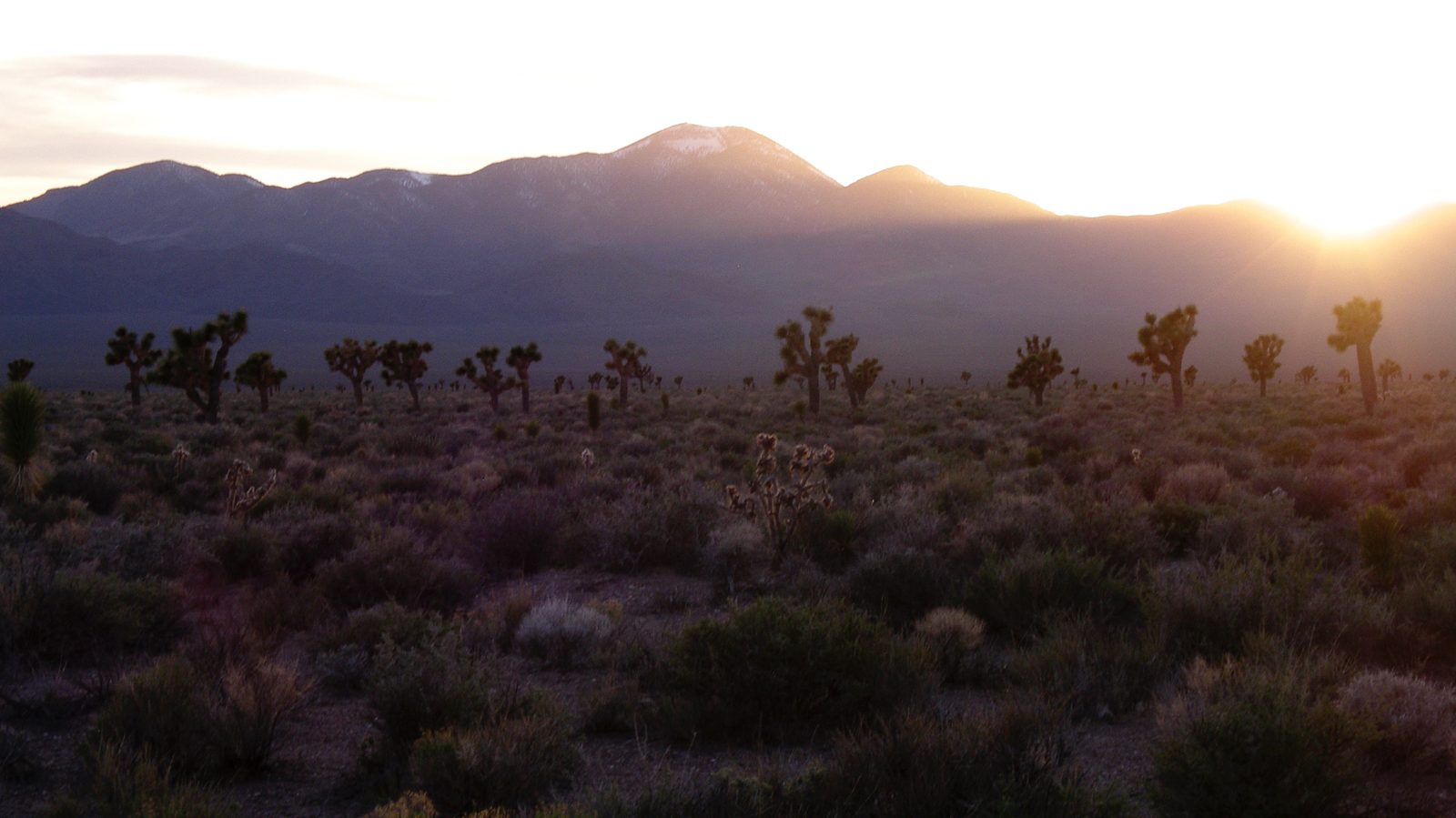Joshua Tree Genome Project PIs offer field research experience this spring

The Departments of Biology at Willamette University and California State University Northridge are pleased to announce a unique field course opportunity for undergraduates in the biological sciences and allied fields: Field Research in Desert Evolutionary Ecology. Professors Christopher (Chris) Smith (WU) and Jeremy Yoder (CSUN) will lead a two week class from Monday, May 22 to Friday, June 2, focused on the population ecology of the Joshua tree, an archetypical species of the Mojave Desert that is threatened with extinction due to climate change. Working from the Zzyzx Desert Studies Center in Baker, California, students will participate in primary research on the population ecology of Joshua trees, will learn surveying and data analysis techniques, and will complete focused research projects culminating in a research symposium. Click through for more details, and a formal course description.
During the course of the program students will reside at the Desert Studies Center, and will spend daylight hours hiking in the adjacent Mojave National Preserve and other protected areas in the Mojave Desert. Participants should be prepared to walk up to a mile at a time, and up to five miles in a day, in desert heat (95 degrees F) while carrying a day pack. Meals and barracks-style lodging are provided as part of tuition. The course will provide transportation from Burbank Airport, to the Desert Studies Center, and from the Desert Studies Center to field sites. Students are responsible for arranging their own transportation to Burbank Airport.
Students will earn 4 credit hours at the 300 level from Willamette University, applicable to the major requirements in Biology at Willamette. Students at other institutions are strongly encouraged to discuss rules for transfer credits and applicability to program requirements at their home schools. Tuition, which covers transportation from Burbank and room and board at the field station, will be $3000. Financial aid may be available if enough students enroll, and students are encouraged to contact their financial aid office to discuss financial support.
Interested students should complete this form to be updated when registration opens.
Course Description:
Biology 399: Topics in Biology: Field Research in Evolutionary Ecology
During an intensive, 2-week long, field-based course, students will learn concepts and field research techniques in population ecology. Using Joshua trees as a case study, students will learn to collect demographic data, will learn to analyze data using the statistical program R, and will contribute to ongoing research on the ecology and natural history of these plants. Students will complete a small-scale research project and will describe their results in the format of a research talk.
Recommended prerequisites: Previous coursework in biology, ecology, or environmental science.
Notes: Students will reside at a field station in the Mojave Desert and will be working outdoors on most days. Participants should be prepared to carry a light backpack and walk over rough, uneven terrain for up to a mile at a time, and up to five miles per day.

You must be logged in to post a comment.